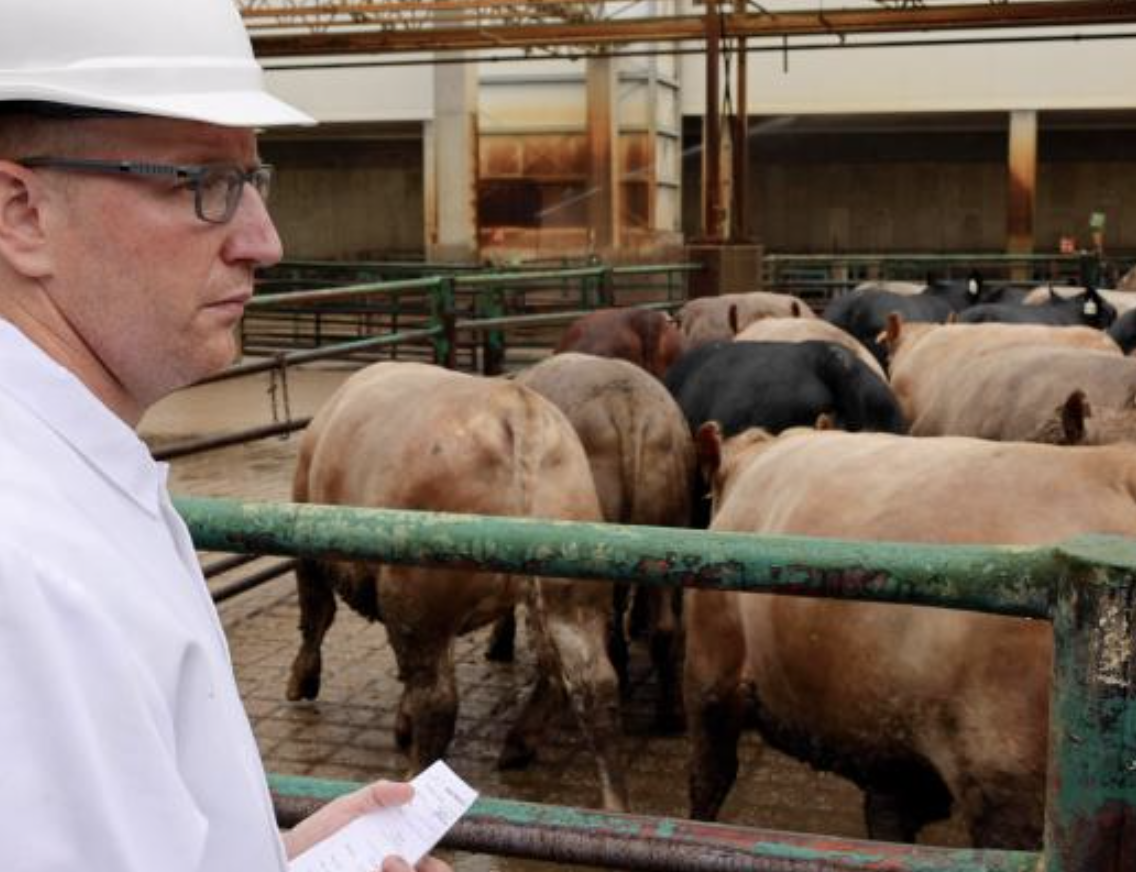FOOD SAFETY NEWS – It costs the USDA’s Food Safety and Inspection Service (FSIS) more than $1 billion a year for close to 10,000 inspectors to provide their services at more than 6,200 locations where the private sector produces meat and egg products.
For the past two years, a few executives in Washington D.C., especially the four who report their meetings with people outside the federal government, claim to be managing this mammoth structure only by telephonic or virtual means.
The public calendar issued by FSIS lists meetings held by the Under Secretary and Deputy Under Secretary, Office of Food Safety (OFS), and the Administrator and Deputy Administrator for FSIS with persons outside the federal government.
Because of the pandemic, Mindy Brashears, then Undersecretary for Food Safety, and FSIS Administrator Paul Kiecker ceased holding in-person meetings.
With the new administration in 2021, Sandra Eskin, Deputy Under Secretary for Food Safety, and Kiecker have continued with only telephone or virtual meetings. However, that may be changing.
In March 2022, the most recent public calendar available at FSIS reports two apparent in-person meetings held by Eskin.
She reports meeting about worker safety with Robert Harrison, University of California San Francisco; David Rempel, University of California San Francisco; Carisa Harris-Adamson, University of California San Francisco; and Kathy Fagan, former OSHA staffer, in San Franciso on March 16.
Then on March 30, Eskin reports a meeting about food safety at Campfire Studios in Washington D.C. Whether those two in-person meetings are ice-breakers, marking an end to FSIS remote operations remains to be seen.
Eskin’s telephonic and virtual meetings continued to dominate during March. On her dance card were:
- Katie Stolte-Carroll, Ohio State University (OSU); Barbara Kowalcyk, OSU; Janet Buffer, OSU; Gina Nicholson Kramer, OSU; Kara Morgan, OSU; Patricia Buck, Center for Foodborne Illness Research and Prevention (CFI); Teresa Schwartz, CFI; Tanya Roberts, CFI and Caren Wilcox, Caren Wilcox & Associates.
- Mike Taylor, Stop Foodborne Illness.
- Ashley Peterson, National Chicken Council.
- Casey Gallimore, North American Meat Institute (NAMI); Mark Dopp, NAMI; Norm Robertson, NAMI; Ashley Peterson, National Chicken Council; Chris Young, American Association of Meat Processors; Emily Solis, Animal Agriculture Alliance; Hannah Thompson-Weeman, Animal Agriculture Alliance; Joe Harris, Southwest Meat Association; and Lindy Froebel, National Turkey Federation.
- Marie March, Virginia House of Delegates; Caleb Cruey, Virginia House of Delegates; Mike Watson, Carroll County Administrator; Larry Edwards, Carroll County EDA Chairman;
- Moir Beamer, VA Produce; Kevin Semones, Southwest Virginia Farmer Market; Danny Boyer, Blue Ridge Plateau
- Angie Siemens, Cargill.
- Mike Taylor, Stop Foodborne Illness; Mike Robach, Cargill.
- Patricia Buck, The Ohio State University; Thomas Gremillion, Consumer Federation.
The President nominated Dr. Jose Emilio Esteban to be the next Undersecretary for Food Safety this past Nov. 15. But the Senate has not confirmed the appointment. Esteban is currently FSIS’s chief scientist.
Eskin and Kiecker did not leave industry and consumer lobbyists wandering the halls at FSIS. They’ve continued to hold call-in meetings for each group on a monthly basis. And Kiecker again did a separate meeting with those involved with establishment management.
(To sign up for a free subscription to Food Safety News, click here)
Meatpackers Misled Public and Influenced Trump Administration During Covid, Report Says
By Linda Qiu, May 12, 2022
THE NEW YORK TIMES — The country’s largest meatpackers successfully lobbied the Trump administration in the early months of the coronavirus pandemic to keep processing plants open despite knowing the health risks to their workers, according to a congressional report released on Thursday.
The report, prepared by a select House committee, describes the extent of the meat industry’s influence on the administration’s response to the pandemic: Companies stoked “baseless” fears of an imminent meat shortage in an effort to prevent plant closures.
The legal department of Tyson Foods drafted the initial version of an executive order President Donald J. Trump issued in April 2020 declaring processing plants as “critical infrastructure.”
And industry concerns prompted the government to adjust its federal recommendations on worker safety at a meatpacking plant.
Representative James E. Clyburn, Democrat of South Carolina and the chairman of the committee, said the findings underlined the companies’ interest in prioritizing production over the health of their workers.
“The shameful conduct of corporate executives pursuing profit at any cost during a crisis and government officials eager to do their bidding regardless of resulting harm to the public must never be repeated,” he said in a statement … read more [subscription may be required]



